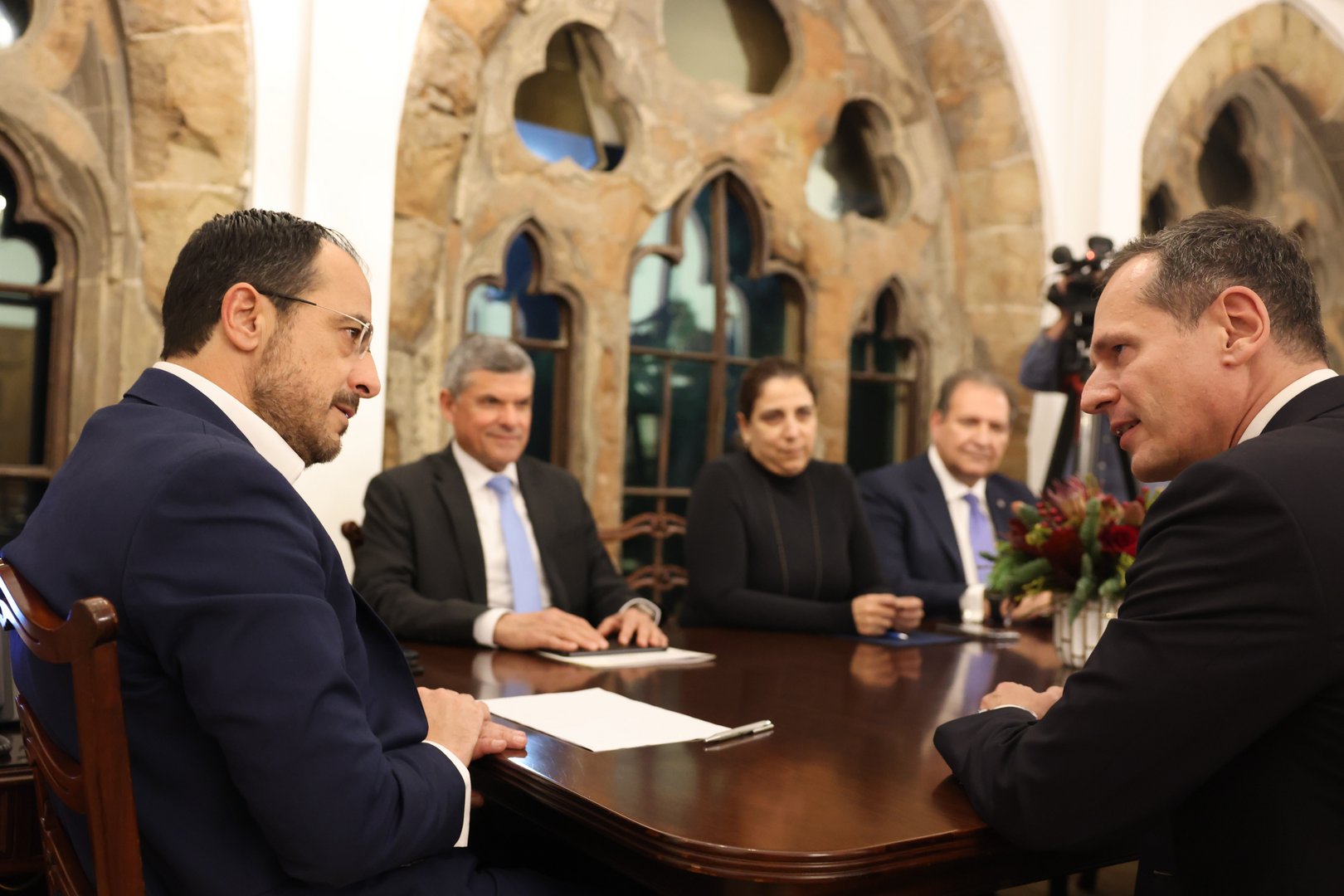Cyprus is mulling becoming a direct investor in the EuroAsia Interconnector – a mooted subsea electricity cable linking the island with Greece and Israel – but any final decisions will come by end of January, the energy minister revealed on Thursday.
George Papanastasiou was speaking to journalists following meetings in Nicosia with representatives of Greece’s Independent Power Transmission Operator (Admie), which recently took over the baton as project promoter from a Cypriot company by the name of EuroAsia Interconnector Ltd.
Representatives of Admie held separate meetings at the energy ministry and then at the palace with President Nikos Christodoulides, with Papanastasiou also attending.
Papanastasiou said the government has already got the draft of a report assigned to a foreign consultancy firm, tasked with assessing whether the subsea cable is viable both financially and geo-politically.
“It appears the findings of the report are positive,” he offered.
Once the final draft is submitted, the government will take a decision on whether to participate in the project. This would occur by late January.
Asked in what way the Republic might participate, Papanastasiou said it would be by acquiring a direct stake in a new holding company to be formed.
Pressed on this, the minister said Cyprus could invest up to €100 million.
Assuming this happens, he said, Cyprus and Admie would jointly hold the majority stake in the holding company.
The minister also revealed that the commercial name for the project has now changed to Great Sea Interconnector.
Papanastasiou was asked about earlier reports that under the stewardship of EuroAsia Interconnector Ltd the project faced a €1 billion financing shortfall, and that the project’s overall cost – for the segment connecting Cyprus to Crete – was estimated at €1.9 billion.
He said the €800 million grant from the European Union plus the now mooted €100 million from Cyprus would amount to €900 million. That still left about €1 billion, which would come from Admie and from investment funds which “have expressed an interest, and we think that on this basis coming up with the full amount will be relatively easy.”
For his part, Admie CEO Manousos Manousakis said he looked forward to Cyprus participating in the project.
Once the project goes online, he added, “it will usher in a new energy era for Cyprus, with cheaper, cleaner energy and energy security.”
The Greek businessman said construction works on the segment linking Cyprus to Crete would start sometime next year and take about four to five years to complete.
Admie expects a contract will be signed with Siemens in late 2024, with the German company undertaking to build the two voltage converter stations on Cyprus that will link up with a converter on Crete.
Regarding the proposed segment linking Cyprus to Israel, Manousakis said this was still on the cards, but it was less “mature” than the Cyprus to Crete segment.
Only once regulatory authorities in Cyprus and Israel come to an agreement, having ensured the link generates income, would construction on that segment begin.
Greece’s Admie is 51 per cent owned by the Greek state. The State Grid Corporation of China has a 24 per cent stake, with the rest owned by other investors.
In January 2022 the European Commission had approved €657 million under the Connecting Europe Facility (CEF) for the cable project. There was also an additional grant of €100 million through the Cyprus Recovery and Resilience Plan, part of the EU Recovery and Resilience Facility (RRF).
The power cable was pitched as aiming to end Cyprus’ electricity isolation from the European continent.







Click here to change your cookie preferences